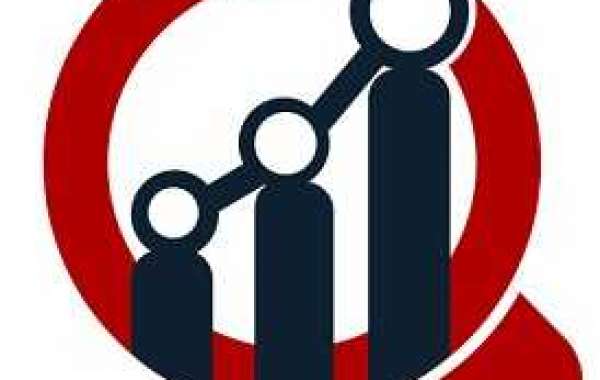Top 7 Personal Development Goals for Work
Why should one develop personal development goals?
As a workforce of the 21st century, it's easy to get swayed away by the ever-evolving workplace dynamics. It is essential to build a persona that not only works for professional tasks but is also suited to thrive in social circles well. This requires that one does a thorough self-analysis and starts working on personal development goals for work.
Setting goals for your professional life builds motivation to carry out certain tasks, gradually building a uniform lifestyle. As a professional, you look forward to completing certain milestones and having a sense of achievement when you complete your goals. Whether numeric or subjective, goals help you stay aligned and prioritize the behaviors and practices, or skills that need more focus.
Personal development goals for work may require training or mentorship from colleagues or supervisors. Goals provide clarity in communication and push one to reach out to people in the workplace to help figure out strategies to tailor processes on how they can be carried out.
Before one works out relationship building at the workplace, it is important to feel confident while maintaining strong bonds in one’s personal circle.
The Wonders offer good guidelines on treasuring and making the most out of these relationships by offering Interpersonal wellness courses that touch upon the different dynamics of social bonds between friends and family.
How to select goals for development?
Working backward from ‘Where do you see yourself
The first step in identifying what would work for you is to determine what kind of professional you dream to become. Decide on your leadership style or technical prowess you want to be associated with. Research relevant career roles and work your way backward to determine what qualities and skills are required to become that person.
Your Goals need to be SMART
SMART is an acronym used to define goals that are specific, measurable, actionable, relevant, and time-bound. Even though this approach is usually related to projects and plans, it is still a useful way to track your performance over time.
Study yourself
Study yourself by recounting your work experiences, taking feedback from co-workers, and also relying on people who know you well to understand your personality and what needs to be improved according to your line of profession. Studying makes you understand what kind of professional you are and instead of imitating other behaviors, you focus on structuring your habits to suit your emotional and physical needs.
7 Best Goals everyone should work on
Some goals that work best regardless of the industry you work in are listed below. Take a look and integrate some into your development plan to become the next big thing.
Developing leadership attitude
Leadership is a versatile role that encompasses problem-solving, relationship-building, and using knowledge for quick decision-making. From IT to social sciences, leadership experiences make you more robust against changes and maintain strong stakeholder relations at your workplace.
Enhancing technical capability
You will often find yourself stuck in a process that you are not wary of and the best way to speed up your performance would be to learn a technical skill, software, or language. Figure out what your line of work values the most and list down relevant technical capabilities that you should learn over a time period .
Fostering creativity
Often misinterpreted as a quality only important to creative roles, creativity, and innovation make every aspect of your work life easier. The key to being creative is to pay attention to detail and figure out ways to make processes easier. It may be as simple as compiling records to designing production machines. If it solves a problem or makes tasks easier, an action could be called creative. Measuring this attribute might be difficult, thus quantifying results would be a good approach to evaluate the effectiveness of the change.
Becoming a complex problem-solver
Problem-solving capabilities make you a proactive and thought-provoking professional. As a more inquisitive person, you would be able to conduct better research and work with alternative solutions. Overall, this makes you more empathetic when you figure out the best ways to resolve issues and make processes easier for everyone involved in your line of work
Expanding Network
As social animals, we are more prone to rely on one another for opportunities and mentoring. Each personal development goal for work you set may have varying significance across different roles, thus it is important to partner and collaborate with diverse teams to make you a collaborative and adaptable person in most situations.
Integrating adaptability
Building up language skills, learning digital tools and software, and reshaping work around online and physical settings have become a norm. When it comes to today’s workforce, one could say it's the survival of the fittest. Apart from technical capability, you should also work towards at least one goal that helps you thrive in ethnically diverse teams and industries.
Improving time management
Working in a fast-paced environment has become more of a requirement than a habit and more professionals every day are transforming workflows to meet tight deadlines. Time management expands beyond completing tasks on time to designing tasks for drafting, reviewing, and editing all within a time frame. Working on this ability makes one more proactive and sensitive to rapid changes, simultaneously increasing adaptability in your career.
Conclusion
There comes a lot of subjectivity when you assign goals to yourself. Since every person has a differing intelligence, emotional capability, and dexterity it is easy to feel demotivated when people around you cross certain milestones. It is important to learn the art of consistency and perseverance, something that would keep you on your toes when progressing in your career.
Working on goals requires not only intrinsic motivation but mentorship and training from people who are best in the field. The foundation for any approach to achieving goals should be to tailor people’s practices to one’s lifestyle and take your time to gradually turn a practice into a habit.
In this digital world, it is highly advisable to keep checks on personal development literature, including books, guides, articles, and further publications penned by industry experts. Personal experiences noted in such material seem more relevant and easy to integrate. Moreover, every time you reshape yourself with an interesting social quality, you increase your chances of professional growth among 1000 similar individuals by many folds.







